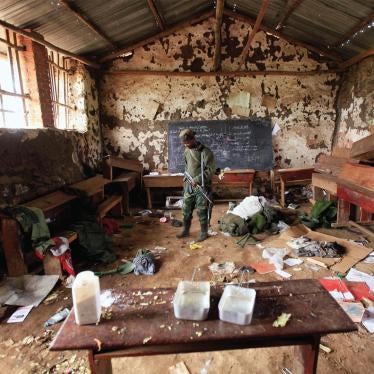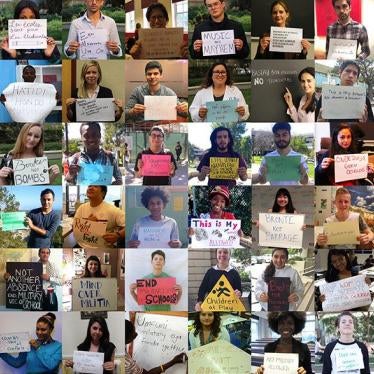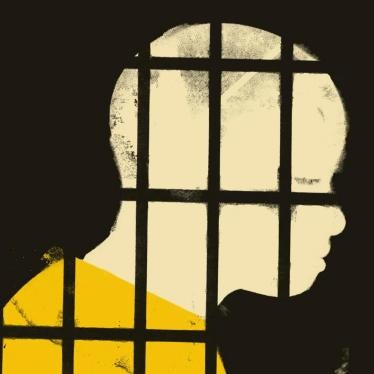Next week, Norway will host an international summit focused on guaranteeing safe schools for children who live in countries affected by armed conflict. Participating countries will join a “Safe Schools” declaration making fresh commitments to protect students, teachers, and schools from targeted attacks, and to refrain from using schools for military purposes such as bases, barracks, detention centers, and ammunition and weapons caches.
But not all countries in Asia are ready to show up in Oslo.
On the positive side, Afghanistan, Pakistan, the Philippines, and Sri Lanka have all committed to attend. That’s particularly laudable since schools have often been targets in the armed conflicts that have so devastated these nations. Indonesia has also indicated it’s going and Bhutan is making positive noises too. Nepal – a regional pioneer in declaring all schools to be “zones of peace” – was also expected, but may understandably have more pressing concerns right now responding to the earthquake crisis.
But – at present – there are five disappointing absentees:
India has shown no interest in the drafting of this declaration, even though attacks on schools are an ongoing concern in areas of the country affected by Maoist armed groups. This is puzzling because India has a worthy record of responding to concerns about security forces using schools. Rather than staying away, India should come and share its examples of good practice.
Japan has made it clear it will not join the declaration, citing concerns about the way the drafting process was carried out, and a potential to create confusion with existing minimum protections for schools in war. But the focus should not be on process, but on the very real issue of protecting children.
Malaysia’s absence is stunning, because since joining the United Nations Security Council, the country has championed the topic of children affected by armed conflict. Only last year, the Security Council encouraged all member states to consider concrete measures to deter the military use of schools. So the nonappearance of the council’s current cheerleader for the issue seems a lost opportunity.
South Korea this week hosts the World Education Forum, where 1,500 experts will set out a vision for global education over the next 15 years. Since guaranteeing safe schools in conflict is key to ensuring genuine universal education, South Korea’s absence seems off-message.
And in Thailand, attacks on teachers and schools in the separatist armed conflict in the country’s south are disturbingly common . Yet the government has commendably reversed its past practice of converting schools into military bases. Joining the declaration would show that this is a long-term commitment.
India and Thailand show change is possible. Other countries could learn from this.
But only if they all turn up next week in Oslo.








